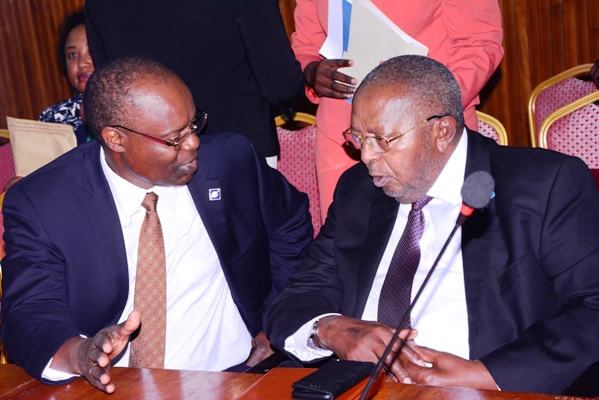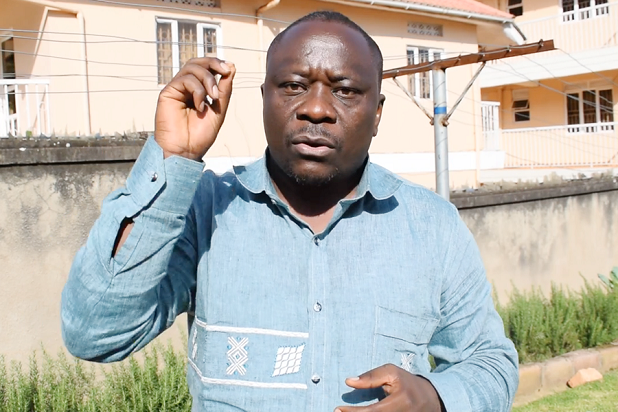It is a public secret that all is not well at Bank of Uganda, the regulator of Uganda’s banking sector. The ongoing probing of BoU officials by the Parliamentary Committee of Commissions, Statutory Authorities and State Enterprises (COSASE) over the controversial closure and sale of seven defunct banks has exposed BoU administrative and governance weaknesses.
The Parliament investigations follow a special audit report by the Auditor General that exposed the rot at Bank of Uganda.
The seven banks in question include Teefe Bank, International Credit Bank Limited, Greenland Bank, Co-operative Bank, National Bank of Commerce (NBC), Global Trust Bank and Crane Bank Limited.
At the beginning, BoU led by Governor Prof. Emmanuel Tumusiime-Mutebile never wanted to be probed on grounds that the Central Bank was independent. However, COSASE defeated this argument and the probing went on.
“.. We are conscious of your constitutional independence…Independence doesn’t mean non-accountability. We know BoU is independent, but accountability is a constitutional requirement. What we are looking for is accountability not criminal prosecution.
In case there is anything we think falls within mandate of other institution, then we shall refer. There is no criminality that’s going to be discussed here,” Abdu Katuntu, the COSASE Chairperson said on day one of the probe.
What Does The Probe Mean To Banking Sector?
Given the sensitivity and importance of the banking sector to the economy, some government officials including President Yoweri Museveni never wanted the probing to be public.
“I think the procedure is wrong, because this is Bank of Uganda; if you want to investigate it, why don’t you do it quietly not in camera … I think the inquiry is good, they should inquire, but they are doing it the wrong way. I haven’t had time to speak to the Speaker,” Museveni said during celebrations to mark the International Anti-Corruption Day held at Kololo Independence Grounds on December 10, 2018.
None the less, Katuntu vowed to continue probing BoU officials in camera for transparency purposes.
But what does the probing mean to the banking sector?
Firstly, bankers are happy with the probing being public, arguing that if it was carried out quietly, they would have been left out on proceedings yet they are key stakeholders of BoU and the economy at large.
Senior bankers who spoke to Business Focus on condition of anonymity for fear of reprisal from the Central Bank said the probe will not leave the BoU and the banking sector the same.
“I am happy with the process. Bank of Uganda corruption tendencies have been exposed before cameras; it is good the dirty linen is being exposed so that we can all improve. I believe after the probe, Parliament will make key recommendations and a number of institutional reforms will be undertaken at Bank of Uganda and the banking sector at large,” the source said.
Banking industry players add that there are some elements in BoU that had made it a habit to ‘extort’ money from banks by reportedly falsifying assessment tests, a practice they hope will stop.
Some banks have also been reportedly bribing BoU officials to project them positively.
“I hope heads will roll at BoU after the probe report is out,” another banker said, adding that after being exposed, BoU will carry out its duties professionally and pay attention to detail- well knowing that they are accountable to Ugandans.
It is worth noting that the former Executive Director, Supervision at Bank of Uganda, Justine Bagyenda revealed that Uganda’s financial sector is full of ethical and governance challenges.
In her hand over report to her successor, Dr. Tumubweine Twinemanzi, Bagyenda said, “The financial sector continues to face governance and unethical challenges across the board. This includes concealment of information, provision of misleading information and possible collusion; they may need to strengthen market intelligence section of the Directorate.”
On whether the inquiry shows a broken system at BoU, Twinemanzi said: “Let’s wait until end of the process; when the report is out, we shall have a discussion on fixing [the issues raised].”
Has Probe badly affected banking sector?
The fact is that some BoU officials have lost credibility before the public, but the Central Bank continues to carry out its constitutional duties of ensuring macro-economic stability.
Bank of Uganda executive director for research, Dr. Adam Mugume recently expressed confidence in the country’s macroeconomic fundamentals, insisting that the parliamentary inquiry into the controversial closure and sale of seven commercials banks has not in any way impacted on the Central bank’s corporate governance image.
In an exclusive interview with Business Focus, Patricia Amito, the Head Communications & Corporate Affairs at Uganda Bankers Association said BoU probe is being handled well and won’t affect the banking sector.
“We believe this is being resolved well and will not necessary have any impact on the banking sector,” Amito said.
Dr. Fred Muhumuza, an analyst and economics lecturer at Makerere University agrees with Mugume and Amito.
“The BoU is still respected in the banking sector and continues to exercise its supervisory role with vigour. The noise in Parliament is largely seen as administrative weaknesses, but not supervisory failures or threats,” Muhumuza told this site.






